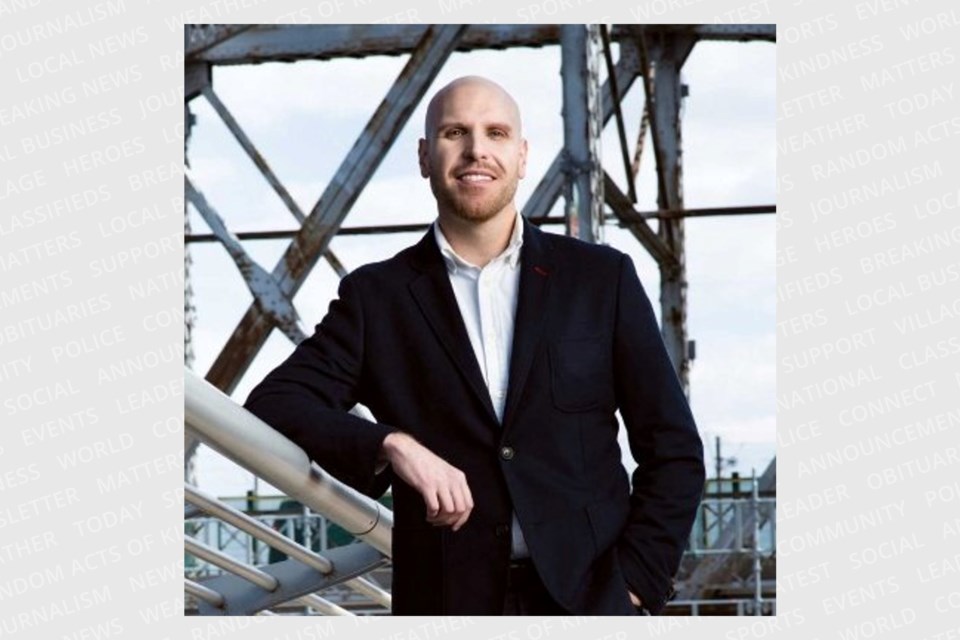Sean Carleton, an assistant professor of history and Indigenous studies at the University of Manitoba, is at the former grounds of Shingwauk Residential School at Algoma University today, where he delivered a lecture on residential school denialism as it continues to gain ground in “extreme right wing” circles in Canada.
“Residential school denialism is not the denial that the system existed, but rather, like other kinds of denialism — whether we’re talking about climate change denialism or science denialism — it’s an attempt to twist and misrepresent basic facts about the system to try and shake public confidence in the process of truth and reconciliation,” said Carleton, during a recent interview with SooToday.
Today's talk was based on peer-reviewed research on the subject, and a product of Carleton’s work as a historian and some of the “frustrating experiences he’s had in trying to talk to people about history and getting pushback and challenged based on misinformation.”
The self-described “settler, non-Indigenous historian” says there’s a number of common talking points denialists will use: the residential system was well-intentioned and a product of the times; that Canadians should focus on the positives of the residential school system as opposed to the negatives; and there were no children who died in residential schools — or if they did, they died of natural causes.
“All of these are falsehoods, and they are not rooted in the actual truth of the system, even according to the church and state’s own records,” said Carleton. “These kind of denialist talking points circulate in public discussion, whether it be online or around the dinner table, in ways that prevent Canadians from meaningfully connecting to the process of putting truth before reconciliation and actually being able to be part of the process of changing the relationship between Indigenous and non-Indigenous people in this country.”
Many prominent denialists, Carleton says, benefit by promoting these sorts of talking points as denialism of the residential school experience has become a part of the “extreme right-wing identity.” He says the same people promoting the so-called "Freedom Convoy" and not wearing masks have picked up on denialism as a way of punching back against what they might see as "woke."
“They get the opportunity to publish op-eds in newspapers, and they organize denialist talks to try to create controversy in hopes of perhaps having the talks cancelled so that they can boost their own popularity,” he said. “But also, I think there’s a deep anti-Indigenous racism at the heart of a lot of this. You see people, when they are confronted with the truth — that for over a hundred years church and state in Canada devised, deployed and defended the genocidal school system that very much benefitted the process of colonization in Canadian nation building — a lot of people respond in shock or surprise; it’s not how they learned about Canadian history in high school, and it’s almost that they can’t believe it.
“They’re taught a false narrative that Canada is a peaceful, benevolent, multicultural, tolerant society — and the fact there’s also a genocide against Indigenous people doesn’t square with that,” he continued. “You have some people who believe in these denialist talking points because it resolves their own cognitive dissonance, that ‘the Canada that I know couldn’t have done this,’ and they fall prey to these denialists who are deliberately trying to shake public confidence.”
But Carleton says that while Canada is seeing an uptick in denialism, its proponents are “using such outlandish ideas” that a more educated population “can see right through” the “flimsy” talking points.
“I think that increasingly, denialists have less and less air to breathe, room to maneuver, because it’s not just professors and academics and policy experts that are sniffing out this denialism and seeing it for what it is. I think people are able to hear these talking points and from a more educated standpoint, push back on it,” he said.
Carleton was also invited by Algoma University to deliver the Hayes-Jenkinson Memorial Lecture and to present his recent book, Lessons in Legitimacy: Colonialism, Capitalism, and the Rise of State Schooling in British Columbia.
The talk takes place Friday, March 24 at the Doc Brown Lounge in the east wing of Algoma University at 7 p.m., with a reception to follow. All are welcome to attend.
“I’m excited to be sharing these truths and connecting people to education and thinking about the ways that truth and education can play a role in justice and healing and moving us towards reconciliation,” said Carleton. “I think that is a fitting venue to be sharing these truths, for sure.”
